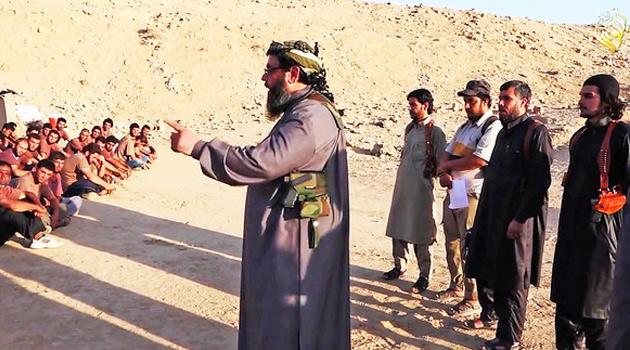Bulgaria: Romani "imam" arrested last year for allegedly joining the so-called Islamic State

Islamist fundamentalists are attempting to exploit the situation of impoverished Romani people in the Balkans and the radical movement of the so-called Islamic State is actively recruiting them into its service. Darko Trifunović, the Serbian representative of the International Strategic Studies Association told news server Southeast European Times last year that the radicals want Romani people living in settlements in Bulgaria to replace their national minority identity with a religious one.
"The Romani settlements are a target for terrorists – they consider us economically and socially vulnerable, uneducated and uninformed. They see us as an easy target to instill with their opinions and recruit from," Jovan Damjanović, President of the World Organization of Roma, also told the Southeast European Times last year.
A favorite destination of the so-called Islamic State is, for example, Bulgaria, a country with one of the biggest Muslim minority populations in Europe, estimated at 14 % of the population. As Czech news server lidovky.cz reported today, last summer the leader of the Salafists from Iztok, Bulgaria, the Romani preacher Ahmed Moussa, was arrested in the city of Pazardjik, Bulgaria.
According to the indictment, Moussa allegedly admonished his followers that it is a sacred obligation of each Muslim to fight in the so-called caliphate, called on them to contribute money to the so-called Islamic State, and celebrated violence in his preaching. He was originally named Angel Stojanov when he left Bulgaria to work in Vienna in the 1990s, where he converted to Islam.
He joined the radical form of Islam in Cologne, Germany, where he established contact with the Turkish extremist group "Kalifaatsstat" and, after returning to Bulgaria, began to work in Iztok as a self-declared "imam". Muslim Roma are not exceptional in Bulgaria or anywhere else in the Balkans, according to fact sheets published by the University of Graz that provide detailed information about their history and problems with finding their identity.
In 1989, the fall of Bulgaria’s leader, Todor Christov Zhivkov, and the communist regime meant most Romani people lost their employment in state-owned enterprises and began to vegetate in isolated ghettos. "Romani people are seeking a new identity in Islam. They want to be part of something bigger than themselves. Something that will break down the walls of their ghettos," historian Antonina Zheljazkova told the Bulgarian newspaper Dnevnik.